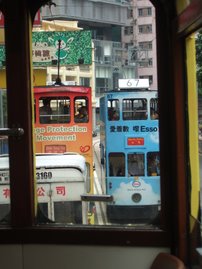The recently revealed diary of Emperor Hirohito's chamberlain has attracted much attention to this issue after the agitation of "comfort women" both in Japan and abroad.
I found it interesting to see this diary made public at this moment by the media, after Japan's Prime Minister Shinzo Abe made several "considerablly inappropriate" statements regarding comfort women and when he is "briefly" visiting US (only 1 night 2 days schedule) at the moment. Although he has so far not visited Yasukuni Shrine since being in power, whether he is gonna stay out of Yasukuni and its related international quarelle to further demonstrate his sincerety of pursuing peace and reconciliation with other Asian countries, mainly China and Korea, or pay his respect to the Shrine at the most important moment during the year - Obon period in Japan (mid-August), as Japanese right wing supporters expect him to do, remains to be observed and followed...
************************************************************************************
Hirohito quit Yasukuni Shrine visits over concerns about war criminals: diary
AP - Emperor Hirohito stopped visiting a Tokyo war shrine at the center of Japan's diplomatic dispute with neighboring nations because of displeasure over its 1978 enshrinement of top war criminals, according to new documents published Thursday.
The insights, provided in the diary of a former imperial chamberlain, reinforce earlier findings from private memorandums that shed light on why the wartime emperor stopped visiting Yasukuni Shrine after his eighth trip in 1975.
In a July 31, 2001, entry of his diary, published by the Asahi newspaper, the chamberlain, Ryogo Urabe, wrote that "the direct cause" was that the emperor was "displeased about the inclusion of Class A war criminals."
Hirohito, under whose name Japan marched across most of Asia in the first half of the 20th century, died in 1989. His son, Akihito, is Japan's current emperor and has never made a pilgrimage to Yasukuni.
The shrine honors Japan's 2.5 million war dead. Visits by Japanese leaders and lawmakers to Yasukuni have long been a source of friction between Japan and its neighbors because the shrine is seen by many as a symbol of Japan's pre-1945 militarism.
In an entry dated April 28, 1988, Urabe said he had been summoned to meet the emperor and that the topic of discussion was the inclusion of war criminals at Yasukuni and China's opposition to the move, the Asahi said.
That passage exactly matches an entry in a diary kept by the Imperial Household Agency chief, Tomohiko Tomita, who had met the emperor before Urabe that day. That passage was made public last year in a report by the Nikkei newspaper.
In Tomita's memo, he quoted the emperor as saying he had stopped his visits after the chief priest at Yasukuni, Nagayoshi Matsudaira, decided to include top war criminals among those commemorated at the shrine, the Nikkei said.
Hirohito said he wondered what the priest was thinking, according to Tomita's account, given the pro-peace views held by the priest's father, Yoshitami Matsudaira, who had been head of the Imperial Household Agency after the war.
"Matsudaira had a strong wish for peace, but the child didn't know the parent's heart," Tomita quoted the emperor as saying, the Nikkei reported. "That's why I have not visited the shrine since. This is my heart."
The diary of Urabe, who died in 2002, will be published in a series of books, the Asahi said. Tomita died in 2003.

No comments:
Post a Comment